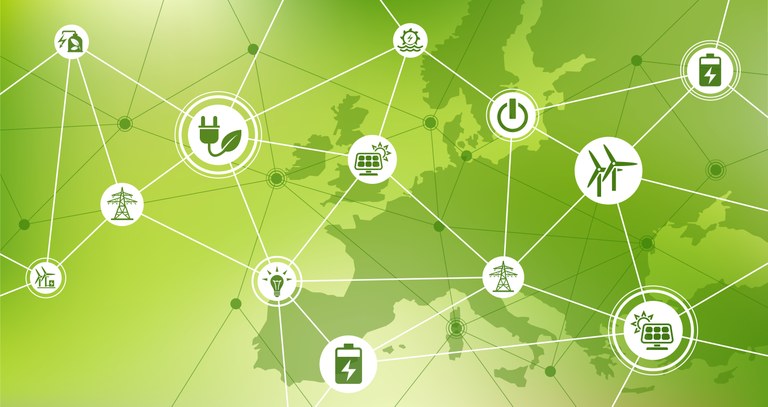Funded by the European Union with 13.8M€, the ReMade@ARI project will provide to scientists from research centres and industries who are developing recyclable materials the possibility to take advantage of the characterization equipment and expert personnel from more than 50 European facilities. The ICN2 is one of the partners, with ICREA Prof. Jordi Arbiol as leader.

The alarming increase in waste and the growing depletion of resources worldwide calls for a radical shift in our economical and productive systems, which must move towards circular economy and sustainable production. The European Commission launched in March 2020 the Circular Economy Action Plan (CEAP), in which seven key product value chains have been identified that must rapidly become circular, given their environmental impact and circularity potentials. This shift, though, requires substantial research on materials, which need to exhibit both a very high recycling capability and competitive functionalities.
To facilitate this process, the Recyclable Materials Development at Analytical Research Infrastructures (ReMade@ARI) project brings together more than 50 European analytical research facilities to create a support hub for material research. Forty of the involved institutes are members of the Analytical Research Infrastructures in Europe (ARIE) network and the ICN2 is one of them. ReMade@ARI, which started on September 1, has been funded with 13.8M€ and is led by the Helmholtz-Zentrum Dresden-Rossendorf (HZDR).
The partners of the project will provide access to their equipment and expertise to scientists who are working on the design of new recyclable materials. The advanced tools provided will enable them to explore the properties and the structure of their material in smallest details up to atomic resolution. This opportunity is offered not only to scientists from academia and research institutes, but also from the industry.
The ICN2 will give access to its Electronic Microscopy Unit and, together with ALBA Synchrotron, to the new Joint Electron Microscopy Centre at ALBA (JEMCA). Expert personnel will also assist the visiting scientists in their work and will help them decide which characterization methods are more suitable for their needs. ICREA Prof. Jordi Arbiol, leader of the ICN2 Advanced Electron Nanoscopy Group, is the Primary Investigator of the project for the ICN2. He will oversee the activities’ management and completion within our institute and in collaboration with ALBA Synchrotron.
"This is a great opportunity for researchers from the public and private sectors all around Europe to get access to the ultimate and most advanced characterization techniques in EU, including large facilities such as a synchrotron lab,’ explains Prof. Arbiol. ‘For us, this is also the first joint project awarded to the ICN2 and the ALBA Synchrotron in the framework of JEMCA, which will allow users to combine electron microscopy and synchrotron light experiments to perform their characterizations". This project was also driven by e-DREAM, the new European platform for advanced electron microscopy, established in 2021.
Find more information here.

This project has received funding from the European Union's Horizon Europe research and innovation programme (HORIZON-INFRA-2021) under grant agreement nº 101058414.

